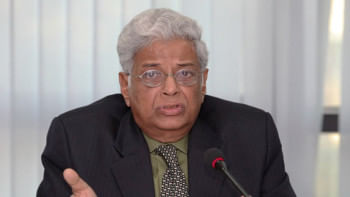BANNING NOT A SOLUTION
Bangladesh is well known to have a culture of 'banning'. During a recent dispute between the ruling party and the opposition in January 2015, apps such as Whatsapp, Viber and Tango were shut down temporarily - primary modes of communication for most in Bangladesh. Facebook was made temporarily unavailable country-wide when there were satirical images posted by an individual on the site. Many online activists were prevented from posting about selected issues, such as the TSC incident in Pahela Baishakh.
Moktadir Dewan Shanto, also known as BeatBaksho, made his music popular amongst the young Bangladeshis by sharing through social media. "Thanks to social media, everyone has something to say and we say it-- some logical or illogical. But when it comes to talking about the greater good, it gets banned or blocked or ridiculed," he says. "Through Twitter, Facebook and Blogs – we express what goes in on our mind, we rebel, we appreciate, and agree/disagree. Where is the freedom of those thoughts and opinions if they get banned or even threatened? Why can't we speak our mind? If it can't be dealt with, at least provide an answer or solution instead of oppression or murdering that freedom of expression!"
When the freedom of expression or speech is in question it is for the authorities to be responsible- those who are giving the freedom and those who are getting it. It is of course the government's responsibility to let its people have the basic right to the freedom, but it is our responsibility to use that freedom wisely.
"Social networks have become a platform to voice out opinions and for the disseminating of information, and as informal as it is, it has become a very integral part in the media," says Professor Muhammad Jahangir, renowned journalist and Director of Center for Development Communication. "The problem with banning is that it is a one party decision- the Government decides it is wrong, and they ban or block websites and platforms, without reason and leaving questions unanswered. People will always have opinions, and the Government can never do anything to stop that, and no amount of banning will help," he says. "But what they can do is bring discipline to it by setting laws for how the opinion is conveyed, what language is being used," he adds. "My suggestion would be to create and establish a Press Council with three wings- print media, electronic media and social media, and that Press Council will create laws for the use of all three. When any law is violated, the accused and the accuser must both be allowed to speak and defend their cases. The main thing to establish is not that the freedom of expression is being controlled but that the culture of impunity is to be removed from the said 'expression'," he says.

 For all latest news, follow The Daily Star's Google News channel.
For all latest news, follow The Daily Star's Google News channel. 



Comments